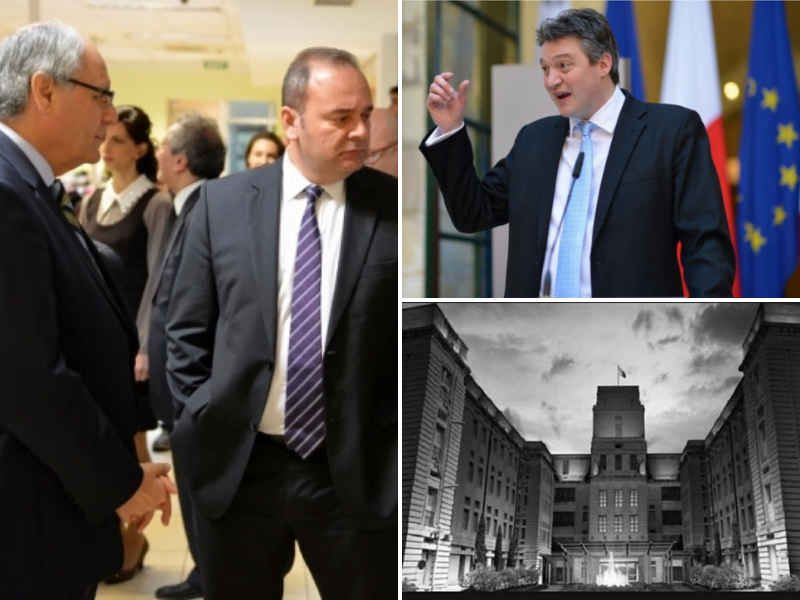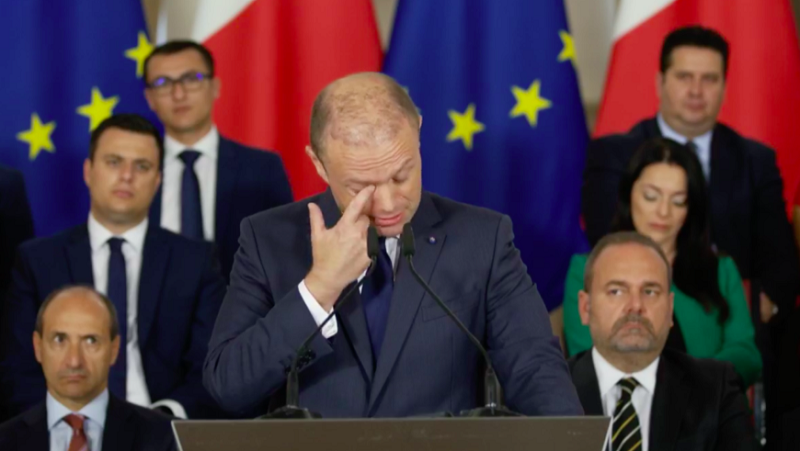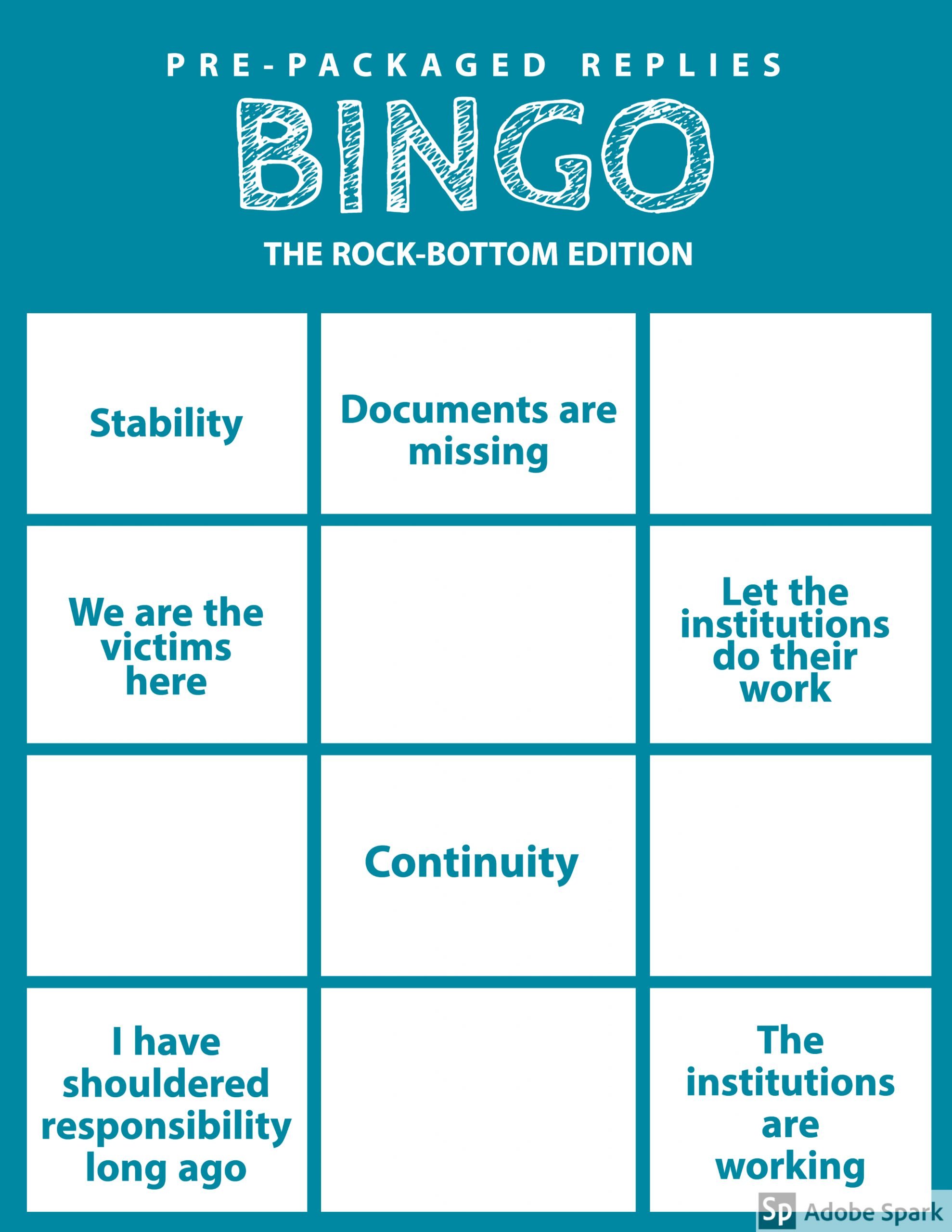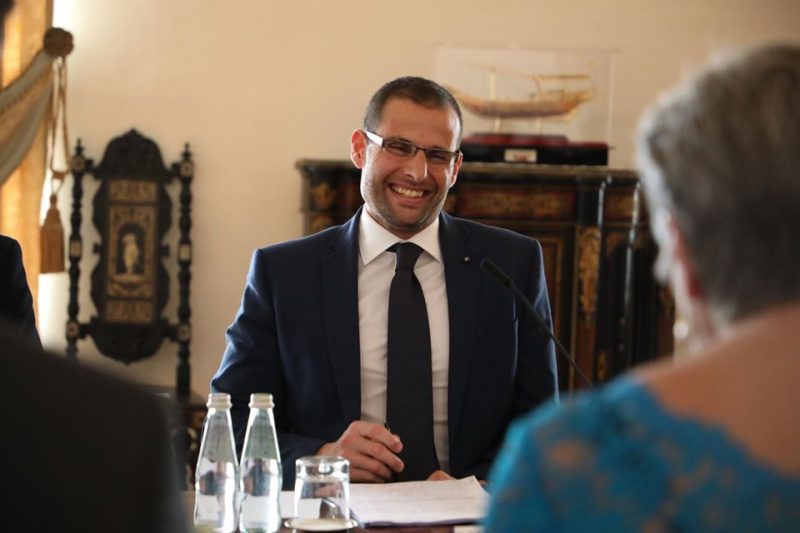When former prime minister Joseph Muscat was asked to comment on the damning report released by the NAO on the hospitals’ privatisation deal, he said he had “shouldered responsibility long ago”. How exactly he did this is anyone’s guess as he does not elaborate further, but his reply sounded familiar.
Fluency and the power of repetition
The way we process information depends on a number of psychological factors, which although originated in academia, have now entered our everyday language.
Cognitive dissonance, an increasingly popular term, was first described in 1957. This is the negative experience that follows an encounter with information that contradicts one’s beliefs, thus leading people to reject credible information.
Confirmation bias is another. This is the tendency to seek out and accept information that confirms your existing beliefs.
There’s also a fascinating factor known as fluency. It refers to how easily individuals process information. The easier information is to interpret, the more likely it is to be accepted as true. Which is why repetition is such a powerful tool.
If you’ve heard something before, you process it more easily and therefore more likely to believe it. Repeat something multiple times and you increase the effect. This is why sometimes, even if false information has been debunked, the sheer repetition of the false claim makes it more familiar and therefore, believable.
Whether the use of trite statements by Malta’s government officials is deliberate or simply a lack of imagination we cannot know for sure, but one thing is certain – there is no shortage of pre-packaged replies.
Now that the summer weather has us all sitting outside at carefully spaced tables and enjoying a cool drink, why not try some bingo with family and friends? Print out and mark your sheet (below) whenever you hear or read the following statements:
‘I have shouldered responsibility long ago…’
The reply Joseph Muscat recently gave when asked about the hospitals’ privatisation deal echoes word for word the same phrase he used in his last televised address to the nation in December 2019.
After listing his ‘achievements’ during his tenure, he goes on to state that his decision to resign was necessary because he had to shoulder the responsibility for decisions which he did not necessarily make (he seems to forget he was the Prime Minister and responsible for decisions made by those he chose to be closest to him).
If this didn’t tug at your heartstrings, he goes on to add that “he ultimately paid the highest price possible…”. Many beg to differ. The person who paid the highest price remains Daphne Caruana Galizia and she was killed on his watch because of scandals created by his government through crooks he empowered.
‘Let the institutions do their work / the institutions are working’
A perennial favourite among our politicians. This hackneyed phrase was quoted and attributed to Muscat in the report on the European Parliament’s 2017 Ad Hoc Mission on the Rule of Law in Malta, following Caruana Galizia’s assassination.
In 2018, the European Banking Authority found serious flaws in Malta’s anti-money laundering setup. When, after a having successfully weaselled himself out of taking responsibility for the outcome of the report, Finance Minister Edward Scicluna was presented with the fact that no action appears to have been taken, his reply switched to the default: “Let’s be fair, we have to let the institutions do their work…”

Finance Minister Edward Scicluna with former Economy Minister Chris Cardona and former Minister Konrad Mizzi – all three are the subject of a magisterial inquiry on the hospitals’ deal.
In February 2019, Former Justice Minister Owen Bonnici delivered a speech to the TAX3 Committee regarding the alleged financial crimes and tax avoidance in Malta. Not long into the speech, intended as a defence of the institution’s worsening reputation, we find the words “but we must also then have the prudence to stand back and let the institutions do their work”.
An identical answer was given in December 2019, when Minister for the Family Michael Falzon was asked whether Muscat should resign given how heavily implicated staff from his office were in Caruana Galizia’s death.
More recently, former Home Affairs Minister Michael Farrugia claimed that he rarely spoke to former Police Commissioner Lawrence Cutajar and when replying to questions by The Times of Malta insisted that he “always let the institutions do their work…”.
The bar is set so low right now that when reports emerged that 32 police officers were allegedly involved in an overtime abuse racket within the Force’s traffic section, Prime Minister Robert Abela stressed that the police were currently looking into the alleged abuse and this showed that the institutions were working, and that ‘difficult decisions’ would continue to be taken.
Who cares that no action was taken regarding the FIAU investigations into top government officials? Look, we’ve caught the traffic police red-handed.
Truly, there are Monty Python sketches that are less absurd.
‘The documents are missing / no such document exists…’
The most recent example of this tactic was used by Abela who told reporters that following the publication of the NAO report, he had “immediately” requested the MOU, signed between the government and people linked to a controversial hospital concession… “but I was informed that the document could not be found.”
If in the past, this excuse had worked well to conceal information from the public, it was not so this time around. Following public outcry, the document was eventually “found” although it is still not made public.
Yet, we have other examples of missing, lost or non-existent documents.
In 2013, the Planning Authority had awarded a three-year contract to Nicholas Wright, the pollster behind the Labour Party’s electoral campaigns of 2013 and 2017. However, the Authority could not find the contract, invoices, receipts, or correspondence related to the direct order or any work products, which lead to a request being filed with the National Audit Office (NAO) to investigate.

From left: Jonathan Cardona (CEO, Identity Malta), Nicholas Wright and Johann Buttigieg (former Executive Chairman, Planning Authority)
When The Shift sent a Freedom Of Information (FOI) request to the Office of the Prime Minister asking whether Muscat and his wife Michelle still enjoyed any benefits (such as cars, consultancies, etc), the reply given was that the office “did not have any documents related to such benefits”.
What about that scatterbrain Keith Schembri who “lost” his phone just moments prior to being called in for questioning in relation to the murder of Caruana Galizia?
Or those 29 “missing” emails from Nexia BT’s servers (the same ones the Attorney General advised against seizing) by Karl Cini to Mossack Fonseca about the setting up of bank accounts for Tillgate and Hearnville in various banks in different jurisdictions?
‘We are the real victims here…’
Bonus points for this one, as it is a tried and tested trick used by many politicians around the globe.
US President Donald Trump deploys this tactic at every opportunity as did Matteo Salvini, Italy’s former Minister of the Interior who was renowned for portraying himself as misunderstood, mistreated and unfairly punished.
When people in power portray themselves as victims, they absolve themselves of any guilt. Once no longer guilty, the self-proclaimed political victims are not responsible for the bad things they go on to do to others.
Now that they have established that things are being done to them by others, not only have they absolved themselves of any wrongdoing but they also garner sympathy and if they play the victim card enough times, it even becomes a source of pride and they can even flip it all on its head and portray themselves as heroes.
Which is why, most recently, when the Montenegro windfarm scam was revealed, the government was unable to spin this the usual way by claiming everything was a lie and that everyone was a traitor.
So, this time, Scicluna went on to state that it was the Maltese government that was the victim in this situation. It’s why the Prime Minister stated that NGO Repubblika wanted him to go to prison.
It’s why former Prime Minister Joseph Muscat shed a tear for us all to see when during a press conference in June 2018 in which he alleged he was the victim of the “biggest lie in political history”.

Joseph Muscat shedding a tear during a press conference in June 2018 in which he alleged he was the victim of the “biggest lie in political history”.
It’s why his wife Michelle ‘felt sorry for herself’ because the death of Caruana Galizia deprived her of the opportunity to challenge the accusations, and it’s why former justice minister Bonnici during a detailed speech in parliament defending Malta’s Attorney General, described how the police were suffering in silence as a result of the constant, unfair criticism.
Continuity, Stability
The latest iteration of these hackneyed words came from President George Vella when he announced his decision that the Leader of the Opposition Adrian Delia could not be removed from his role because the position should be held by the leader of the largest Party in Opposition, despite a majority of MPs having nominated Therese Comodini Cachia as an alternative.
The President confirmed that meetings held with the Opposition parliamentary group showed Delia no longer enjoyed their support but justified his decision to depart from what is written in the Constitution on “the principle of necessity” – undermining the supreme law of the land for his view of “continuity” and “stability”.
How departing from the country’s written constitution favours stability is perhaps a question for legal experts, although none appear to share the President’s views.
But it was not long ago that Abela, in his inaugural address as new Labour leader, is quoted as saying, “we will transform continuity into stability. That is a recipe that worked and gave us many successes so let us continue to follow it. It expanded the economy and made the country strong”.
As things stand, Muscat has yet to shoulder any real responsibility. The institutions haven’t been working for a long while, evidence is still being squirrelled away and far from any form of stability the country seems to be knee-deep in some sort of Kafkaesque existential crisis.
The blank spaces on the card are for any new words or soundbites that we are likely to encounter in the future and that will be repeated by our politicians verbatim over and over, so that we may become familiar with them, in the hope that eventually, we will believe them.













